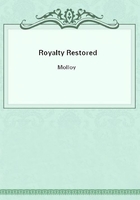
第28章 CHAPTER V.(2)
Subsequently refusing liberal offers made him by Cromwell, on condition of living in peaceful retirement, he, after the execution of Charles I., betook himself to France, and shared exile with the young king until the restoration. In consequence of his proven fealty, honours were then deservingly showered upon him: he was made grand steward of the household, first lord of the bedchamber, and subsequently lord lieutenant of Ireland. The duchess, who had participated in her husband's misfortunes with a courage equal to his own, was a high-minded and most virtuous lady, who had brought up her family with great care. Scarcely less distinguished in mien and manner than the duke, were his two sons, Thomas, Earl of Ossory, and Lord Richard Butler, afterwards Earl of Arran. My lord of Ossory was no less remarkable for his beauty than famous for his accomplishments: he rode and played tennis to perfection, performed upon the lute to entrancement, and danced to the admiration of the court; he was moreover a good historian, and well versed in chronicles of romance. No less was the Earl of Arran proficient in qualifications befitting his birth, and gifted with attributes aiding his gallantry.
A third member of this noble family played a more remarkable part in the history of the court during her brief career than either of her brothers. This was the Lady Elizabeth Butler, eldest daughter of the duke, who, unfortunately for her own happiness, married my Lord Chesterfield at the Hague, when, a few months before the restoration, that nobleman fled to the continent to escape the consequences of Francis Woolley's murder. In Lely's picture of the young Countess of Chesterfield, her piquancy attracts at a glance, whilst her beauty charms on examination.
Her cousin, Anthony Hamilton, describes her as having large blue eyes, very tempting and alluring, a complexion extremely fair, and a heart "ever open to tender sentiments," by reason of which her troubles arose, as shall be set down in proper sequence.
Henry Jermyn, Earl of St. Albans, and his nephew, "the little Jermyn," were also notable as figuring in court intrigues. The earl was member of the privy council to his majesty, and moreover held a still closer connection to the queen mother; for, according to Sir John Reresby, Madame Buviere, and others, her majesty had privately married his lordship abroad--an act of condescension he repaid with inhumanity. Madame Buviere says he never gave the queen a good word; and when she spoke to him he used to say, "Que me veut cette femme?" The same authority adds, he treated her majesty in an extremely ill manner, "so that whilst she had not a faggot to warm herself, he had in his apartments a good fire and a sumptuous table." [This testimony concerning the queen's poverty is borne out by Cardinal de Retz.
In his interesting Memoirs he tells of a visit he paid the queen mother, then an exile in Paris. He found her with her youngest daughter, Henrietta, in the chamber of the latter. "At my coming in," says the Cardinal, "she (the queen) said, 'You see, I am come to keep Henrietta company; the poor child could not rise to-day for want of a fire.' The truth is, that the Cardinal (Mazarin)for six months together had not ordered her any money towards her pension; that no tradespeople would trust her for anything and there was not at her lodgings a single billet. You will do me the justice to think that the princess of England did not keep her bed the next day for want of a faggot. . . Posterity will hardly believe that a princess of England, grand-daughter to Henry the Great, hath wanted a faggot in the month of January, in the Louvre, and in the eyes of the French court."] Pepys records that the marriage of her majesty to the earl was commonly talked of at the restoration; and he likewise mentions it was rumoured "that they had a daughter between them in France. How true," says this gossip, "God knows."The earl's nephew, Henry Jermyn, is described as having a big head and little legs, an affected carriage, and a wit consisting "in expressions learned by rote, which he occasionally employed either in raillery or love." For all that, he being a man of amorous disposition, the number of his intrigues was no less remarkable than the rank of those who shared them. Most notable amongst his conquests was the king's eldest sister, widow of the Prince of Orange--a lady possessing in no small degree natural affections for which her illustrious family were notorious.
During the exile of Charles II., Henry Jermyn had made a considerable figure at her court in Holland by reason of the splendour of his equipage, entirely supported by his uncle's wealth; he had likewise made a forcible impression on her heart by virtue of the ardour of his addresses, wholly sustained by his own effrontery. The effect of his presence on the princess soon became visible to the court. Rumour whispered that as Lord St.
Albans had already made an alliance with royalty, his nephew had likewise followed his example; but scandal declared that young Jermyn and the princess had omitted the ceremony which should have sanctioned their happiness. The reputation of such an amour gained him the immediate attention of many women, whose interest in his character increased with the knowledge of his abilities, and helped to associate him in their memories with tenderest emotions.